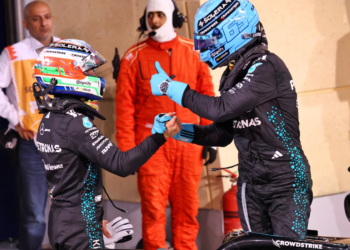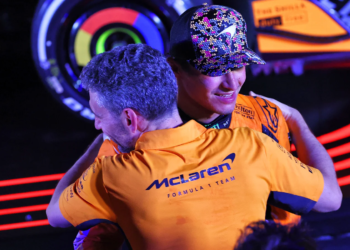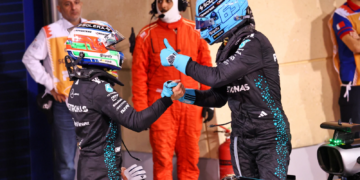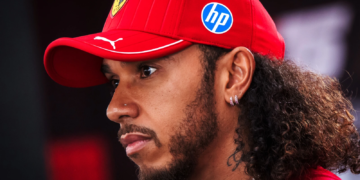Formula 1 tyre supplier Pirelli reckons this year’s cars are “probably as fast” as last season’s iterations, in spite of revised regulations aimed at slowing the machines.
It was agreed by Formula 1 stakeholders to tweak the regulations owing to the retention of the 2020 chassis for another season due to the pandemic.
Changes have been made to the floors, brake ducts and diffuser strakes, aimed at reducing downforce levels, with performance also affected by Pirelli’s revised construction, designed to reduced the risk of stress-related failures.
Formula 1 returned to the Bahrain International Circuit for pre-season testing less than four months after the venue held last year’s postponed grand prix.
Max Verstappen’s pace-setting time of 1:28.960s, set on the C4s – effectively the Soft compound at the event, which compared to the pole-winning time of 1:27.264s set by Lewis Hamilton.
Pirelli chief Mario Isola believes that given the track conditions, unknown fuel and engine modes and the fact “we know teams are hiding their real performance,” the overall times will be similar to 2020.
“I’m not surprised of the amount of downforce they [teams] have been able to recover, even before the start of the season, as we are know they are very good,” said Isola.
“I’m happy we decided last year together with the FIA, FOM and the teams to work in the two directions, one to reduce downforce on the car and the other one to fine tune the construction in order to have a construction that can cope with the additional loads that will probably happen in the second half of the season.
“Despite the difficult situation we had with Covid, we took the right decision, and working in parallel we have a [tyre] product that is now more robust and cars that are probably as fast as last year.”
Isola believes that teams have only lost around “four to five per cent” of the 2020 downforce levels, underlining the importance of reining in last year’s car.
“Looking at the lap times the difference compared to last year is very very very small,” he said.
“If we consider that probably the track was not in perfect condition, the reduction in downforce, and the fuel corrected lap times, I believe we are not going to see a delta lap time [that shows] a difference in reduced performance compared to last year.”









